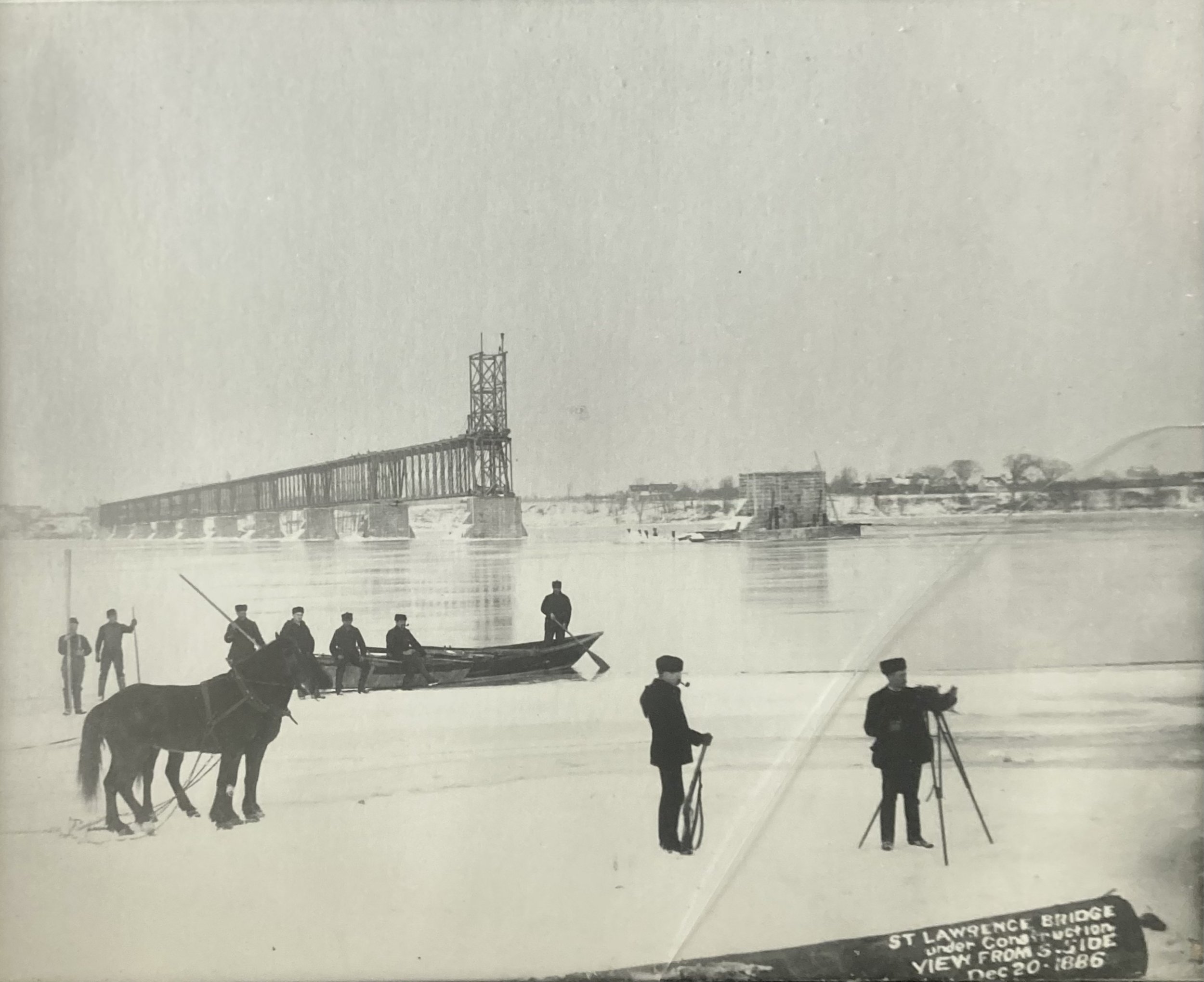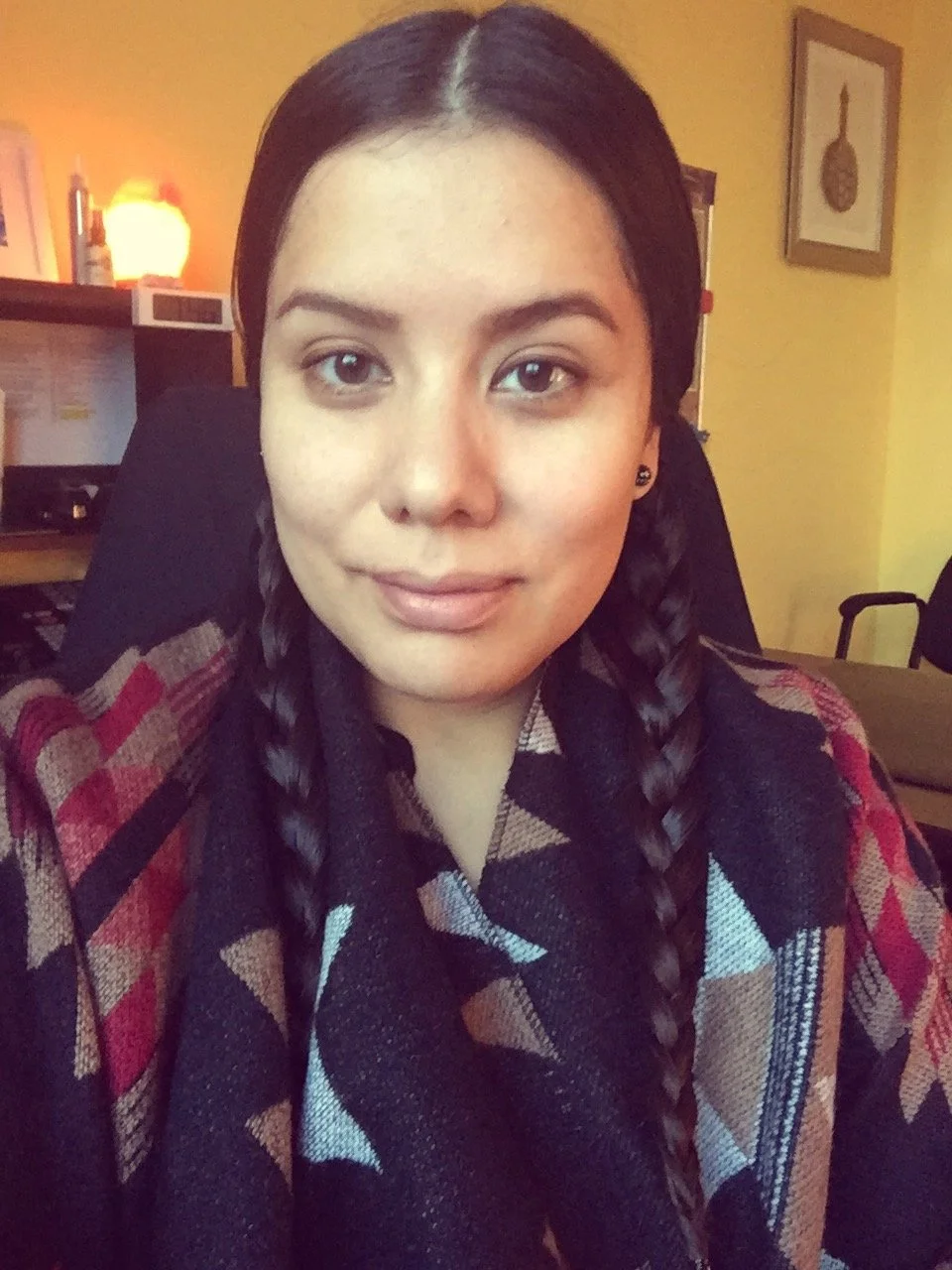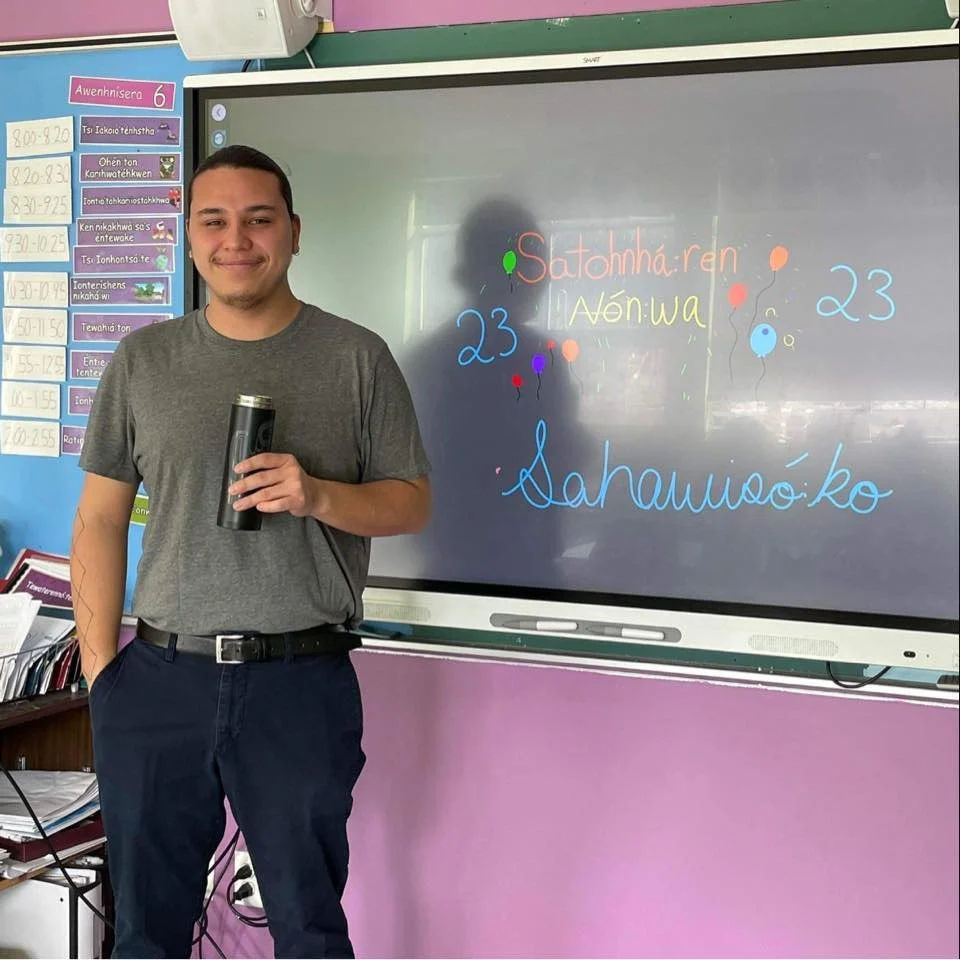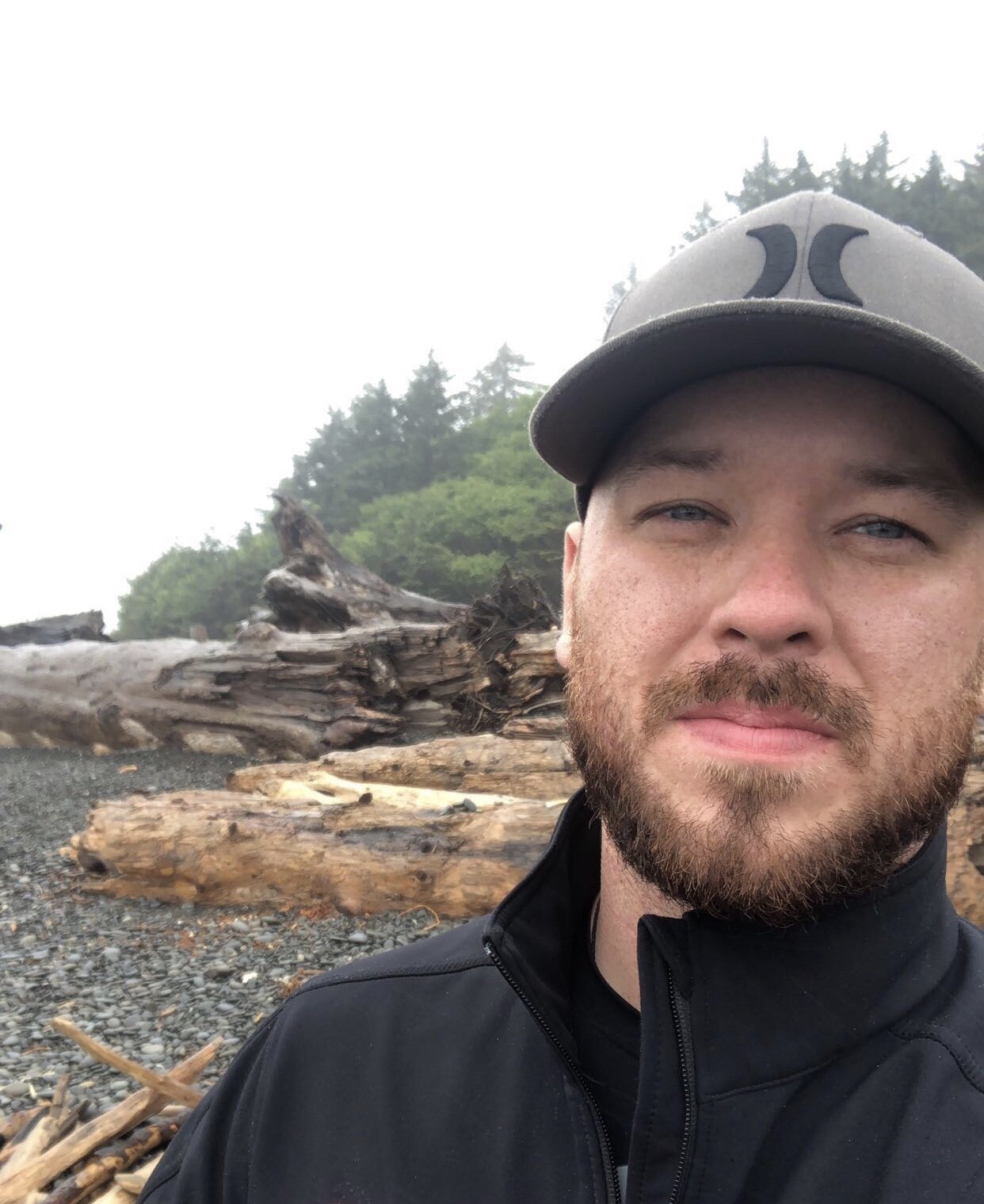
Who we are
Established in 2022, “Sharing Our Stories” is a collection of stories told by Kanien’kehá:ka (Mohawk) elders and knowledge keepers rooted in the movement to replant the traditional language, culture, and history of the Indigenous community in Kahnawake and surrounding Kanien’kehá:ka communities. We translate each story into Kanien’kehá in order to help us with this project.
This project aims to create a teaching tool for generations to come. We have been collecting stories from residential and Indian day school survivors, Mohawk Warriors, medicine men and traditional healers, farmers and seed savers, educators, ironworkers, land defenders, artists, and more.
We are consulting storytellers throughout, taking time on our translations, and scoring archives to find information, records, maps, and photos that support the stories in our care.
View of the Bay Ridge - Shore Road and Parkway area - in New York City from the Verrazano-Narrows bridge. Kanien’kehá:ka helped build a lot of infrastructure in New York City through ironwork. (Courtesy: Kanien'keháka Onkwawén:na Raotitióhkwa Language and Cultural Center)

Mission statement
Our mission is to empower Kanien’kehá:ka communities by collecting and preserving their stories, language, culture, and history. Through the publication of stories in both English and Kanien'kéha, we aim to foster cross-cultural understanding, nurture cultural traditions, and encourage community connection. Our project serves as a teaching tool - promoting respect, appreciation, and conservation of Indigenous culture, language and history for future generations.
First Kahnawake powwow in 1991 (Courtesy: Martin Loft)

Objectives
Preserve and promote the traditional language, culture, and history of the Kanien’kehá:ka community in Kahnawake and other Indigenous communities through the collection and sharing of their stories.
Foster a sense of community and connection among Kanien’kehá:ka people by creating a shared resource of their stories and traditional knowledge.
Address the legacy of colonization and residential schools by creating a space for Indigenous people to reclaim their stories and histories.
Build bridges of understanding and empathy between Indigenous and non-Indigenous communities by promoting cross-cultural exchange and education about the traditional language, culture, and history of the Kanien’kehá:ka community.
Develop a teaching tool that can be used in schools, community centers, and other educational settings to promote understanding and respect for Indigenous culture and history.
Saint-Lawrence train bridge (next to the Mercier bridge) built in 1886. This photo would have been taken not far from the current post office in Kahnawake and the man are by the current bank in town. (Courtesy: Sonny Joe Cross)
Story topics
Reconciliation
Indian day & residential school
Land claims & land defenders
Language
Agriculture
Medicine
Family
Ceremonies, dances and songs
Traditional ways of governance
Ironwork
Mohawk warriors
St. Lawrence Seaway
Communities before and after contact
Education
Longhouse traditions
In our interviewing process, we allow the elders and knowledge keepers to lead the conversation and share with us whatever they feel comfortable with. From this, we’ve collected a large range of story topics. These include:
Credit: Emma McLaughlin
What People Are Saying
“Sharing our Stories is so important for the younger generation to learn about life in Kahnawake, as told by the Elders - how simple life was and how hard they worked, planting and preserving their produce. With no phones, most entertained themselves outdoors.”
— Peggy Mayo-Standup
KAHNAWAKE ELDER
“ I feel that it’s important that us Elders tell our stories because we’re not going to be here forever. After we’re gone, our stories are going to live on for the younger generation. It’s been an exciting experience. I always look forward to going for my next interview.”
— Leonard Atonnion Bordeau
KAHNAWAKE ELDER
“We can envision their life just by their story being told. I love hearing about how they grew up. Stories were always told in Kanien‘kéha by our grandparents, parents just like today. I cut out and keep every story to help me learn.”
— Queenie Mccomber
KAHNAWAKE COMMUNITY MEMBER
I really enjoy Sharing Our Stories. As a second language speaker, I am always on the hunt for Kanien’kéha reading material that I can use to practice my comprehension, and refresh my memory for spelling. Often times the resources available in the community are geared toward beginners, and are not challenging enough for my son and I. I was pleasantly surprised when I saw entire stories were being translated into Kanien’kéha with Sharing Our Stories.
What I like to do is read the Kanien’kéha first, and then read the English after to see how well my understanding matched up with the text. If I encountered any words I did not recognize, I look for them in the English text to see what they were. And vice versa.
I also like that the stories come from our elders, who are so precious to us and have memories that need to be shared. It is important to learn our history, our values, and understand what life was like in Kahnawà:ke. The topics shared are always interesting, educational, or humorous to read. I like looking at the old pictures as well.
While I enjoy reading at length, it can be hard to find time during the busy day to do so, so it comes in handy that the stories are short. It doesn’t take long or too much effort to read them, and it’s great for littles ones with shorter attention spans. My son is 5-years-old and a first language speaker, so I like to collect the stories and read them to him. The stories are short enough for him to sit through (given it is not a kids’ picture book) and he gets to learn new things and new words at the same time.
I hope to eventually put all the stories together in one book so that my son can read back on them when he’s older and at a higher reading level. This is a very valuable resource for learners and I hope it continues
— Karihwiióstha Callie Montour
KAHNAWAKE COMMUNITY MEMBER
Meet the Team
Meet the Board of directors













